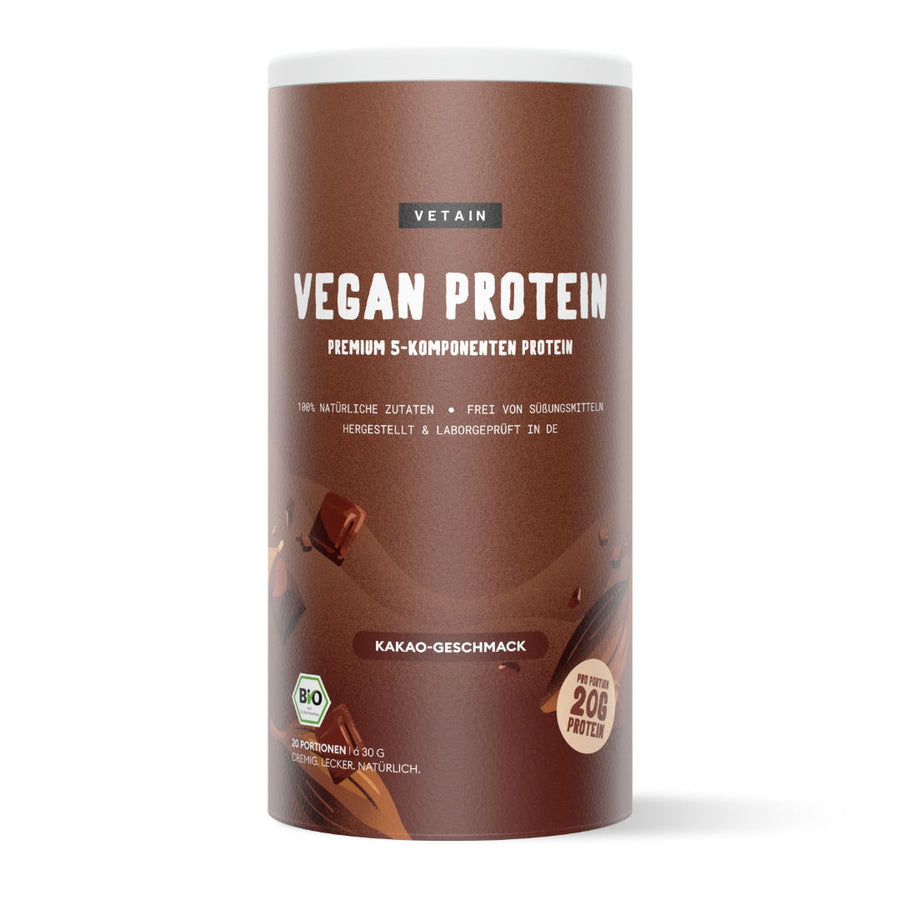Capsules, tablets & co. are far more than just beauty boosters for women. In fact, they can support us through every phase of life and evolve alongside our needs. Whether it’s omega-3 fatty acids for heart health or vitamin D for strong bones—supplements can enhance our nutrient intake and overall well-being.
But not every supplement is automatically recommended for every woman. That’s why today we’re diving into the question: Which supplements are actually beneficial for women? In the next few minutes, you’ll learn everything you need to know.
Quick Takeaway: Which Supplements Are Beneficial for Women?
- The best supplements for women depend on several factors such as life stage, diet, and activity level.
- In general, the same recommendations apply as for the general population—with a few exceptions.
- During pregnancy and breastfeeding in particular, nutrient needs are significantly higher.
Why Supplements at All?
Before we dive into “Which supplements are beneficial for women?”, let’s answer two important questions:
Why are supplements important for women in the first place?
And why is there a difference between the needs of men and women?
Here’s why:
-
Higher nutrient needs during certain life stages such as pregnancy or breastfeeding
-
Hormonal influences: constantly fluctuating needs
-
Social pressure: constant dieting or new food trends can impact nutrient intake
-
Chronic stress: lowers appetite but increases nutrient demand
-
Compared to men, women often consume fewer calories, yet require the same or even more micronutrients
So yes—supplements play a particularly important role in women’s nutrition. If you’re feeling a bit overwhelmed at this point, check out our article “What Are Supplements?” for a solid introduction.
Now that the basics are covered, let’s move on to today’s main topic: Which supplements are beneficial for women?
Which Supplements Are Beneficial for Women at Different Life Stages?
A woman’s body—and therefore her nutrient needs—constantly changes throughout life.
One thing remains the same: As a general recommendation, healthy people in Germany are advised to supplement iodine (via iodized salt*), vitamin D (especially in winter), and omega-3 fatty acids (if fish is rarely or never consumed).
Depending on the life stage, additional nutrients may be necessary:
Supplements for Women and the Menstrual Cycle
Fluctuating hormone levels and various biological processes have a major impact on women's nutrient needs. While some women are more resilient, others experience symptoms such as iron deficiency.
Supplement needs are highly individual. That’s why we’re not giving blanket recommendations here—it simply wouldn’t fit everyone.
However, keep an eye on your magnesium and vitamin B6 intake—they can help with hormonal fluctuations. And get your iron levels checked! Many young women are iron deficient.
Important: Never take iron supplements without a diagnosed deficiency or medical advice.
+Standard recommendation (iodized salt, vitamin D, omega-3 fatty acids)
Special Needs During Pregnancy
During pregnancy, a woman’s nutritional needs increase—understandably, since you’re nourishing two bodies now.
This topic is so complex that we’ve dedicated a full article to it: “Which Supplements Are Beneficial for Women During Pregnancy?”
The Body Still Feeds Two During Breastfeeding
After childbirth, many women have depleted iron stores. It’s wise to get tested and supplement if needed.
Calcium or magnesium may also be helpful if dietary intake falls short.
+Standard recommendation (iodized salt, vitamin D, omega-3 fatty acids)
Menopause as a Challenge
Nutritional needs shift again during menopause. On top of hot flashes, sleep issues, and weight gain, the question “Which supplements are beneficial for women?” comes up again.
Your new best friends now: Calcium and vitamin D.
Getting enough of both is essential to help prevent osteoporosis and other bone issues. Some women may also benefit from B vitamins and magnesium.
+Standard recommendation (iodized salt, vitamin D, omega-3 fatty acids)
Minerals and Vitamins for Older Women
What starts during menopause continues here: calcium and vitamin D remain key.
Supporting the immune system also becomes a priority.
The rest depends entirely on the individual: How are you feeling? Any illnesses? What are your needs and limitations?
A full article on which supplements are beneficial for women in older age is coming soon!
+Standard recommendation (iodized salt, vitamin D, omega-3 fatty acids)
Which Supplements Are Beneficial for Women with Different Lifestyles?
Beyond life stages, other factors also influence supplement needs—like diet, activity, and stress levels.
Let’s take a look:
Vegetarian and Vegan Diets
Which supplements are beneficial for women following a vegetarian or vegan diet?
It’s a bit of a puzzle, because different recommendations overlap here:
-
Standard recommendation (iodized salt, vitamin D, omega-3 fatty acids)
-
Life stage recommendations (pregnancy, etc.) → see above
-
Specific advice for plant-based diets → stay tuned, article coming soon!
Go through each section and take notes on what applies to you.
Supplements for Muscle Building in Women
Physically active women—especially those aiming to build muscle—can benefit from supplements.
Which supplements are beneficial for women in sports?
Magnesium, creatine, and zinc can be helpful. And extra protein is often a smart move too.
+Standard recommendation (iodized salt, vitamin D, omega-3 fatty acids)
Don’t forget about recovery. Check out this article for tips on what helps with sore muscles: What Helps with Muscle Soreness?
Stress
If life’s chaotic right now, vitamin B6, magnesium, and vitamin C can support you during stressful periods.
But remember: A well-balanced diet often does the trick—supplements aren’t always necessary.
+Standard recommendation (iodized salt, vitamin D, omega-3 fatty acids)
Pro tip: If you don’t have time to Google “which supplements are beneficial for women under stress,” take a quick screenshot of this section. You’ll be prepared next time things get hectic.
Side Note: The Role of Protein for Women
Proteins are crucial for women in every phase of life. They do far more than build muscle:
They also impact hormones, bones, the immune system—and overall well-being.
You can get protein from foods like legumes and nuts.
Or boost your intake with high-protein products like shakes or bars.
Do I Need Supplements?
We can’t give a blanket answer here—everyone's needs are different.
But here are some signs that supplements might be helpful for you:
-
You’re in a special life stage (pregnancy, breastfeeding, menopause, etc.)
-
You struggle to meet your nutrient needs through diet alone
-
You follow a vegetarian or vegan diet
-
You’re highly active or train often
-
You’re under a lot of stress or pressure
-
You have symptoms of a deficiency (medical check-up essential!): constant fatigue, sleep issues, frequent infections, hair loss, etc.
Keep in mind: As the name implies, supplements are meant to supplement a healthy diet—not replace it. Always try to meet your nutrient needs through balanced food choices first.
Conclusion
So, which supplements are beneficial for women?
Helpful supplements for women include vitamin D, iodized salt, and omega-3 fatty acids.
Others, such as magnesium or iron, may also be beneficial depending on your needs.
Most importantly: Always do your research and seek medical or professional advice before starting any supplement routine.
One last tip: You’ll often see “vitamins for women over 30” or “women over 40” in stores.
These labels can offer a general reference—but remember: Not all 30-year-olds are in the same phase of life. We have different routines, habits, and bodies. So naturally, our supplement needs vary too.
FAQ (Frequently Asked Questions)
What are the most important vitamins for women?
Vitamin D, omega-3 fatty acids, and iodine (via iodized salt) are essential for women of all ages. Folic acid is also important during certain life stages.
Are supplements important for women and their hormones?
Yes! Supplements can support women’s health and even influence hormones, since some are involved in hormonal pathways.
Do women need supplements?
That depends on the individual. Factors like life stage, lifestyle, and diet all play a role.
Which supplements are beneficial for women?
It depends on how your nutrient intake compares to your nutrient needs. There are big differences depending on diet, lifestyle, and more.
Literature & Sources
- BZfE (Bundeszentrum für Ernährung) in der Bundesanstalt für Landwirtschaft und Ernährung (BLE); Seeher, J.; Thiesmeier-Dormann, C. & Schmidt-Packmohr, C. (2023). Vitamine, Mineralstoffe und Co. Wann ist eine Nahrungsergänzung sinnvoll? In: Kompass Ernährung, 27(1).
- DGE (Deutsche Gesellschaft für Ernährung e.V.) (o.J). Referenzwerte. https://www.dge.de/wissenschaft/referenzwerte/
- Smith-Ryan, A. E., Cabre, H. E. & Moore, S. R. (2022). Active Women Across the Lifespan: Nutritional Ingredients to Support Health and Wellness. In: Sports Medicine, 52(S1).
About the Author
Melanie Seyfarth holds a B.Sc. in Nutritional Science, is a certified supplement consultant, and specializes in vegetarian and vegan diets. Since 2018, she’s been researching nutrition and health. On this blog, she writes about nutrition, sports, and lifestyle, and shares delicious, easy-to-follow recipes. Her articles are based on current research, hands-on experience, and a passion for making complex topics easy and enjoyable to understand.
Got questions? Feel free to send me an email—I’d love to hear from you! :)
*Iodized salt isn’t technically a supplement, but we’ve included it here because it’s still under-consumed and highly important. Actual iodine supplements are only recommended in specific life stages and not for everyone.


















 9 Min
9 Min
 Zuletzt aktualisiert am 22.06.2025
Zuletzt aktualisiert am 22.06.2025





